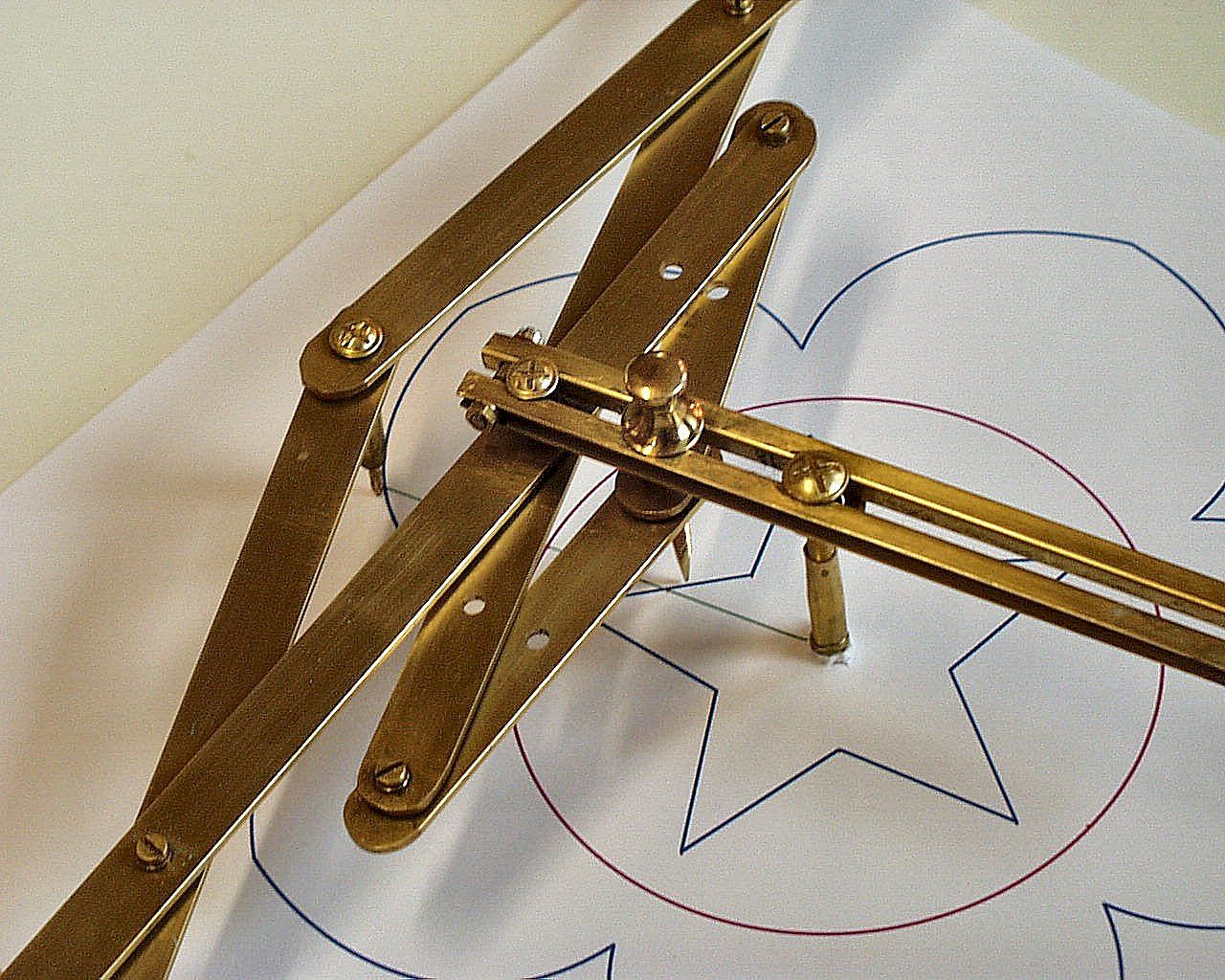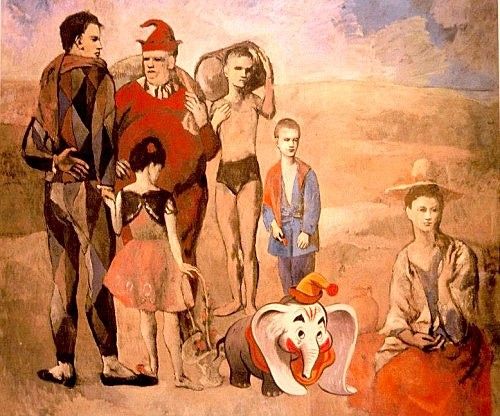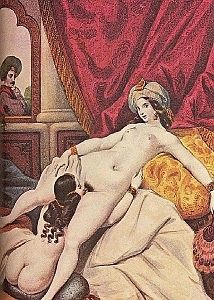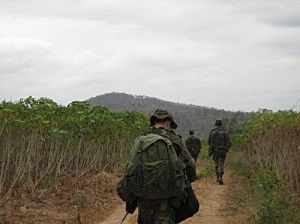Pantograph Picks: Our Top Reads of 2013
In case you missed them, and in case you need something to read for Anniversary Weekend - here are the team's favourite features that ran on the site last year.
2013 was a good year for the Pantograph Punch. We started off as three writers and the occasional very kind friend pitching in with a great piece they essentially donated to us; by year's end, we'd ended up publishing nearly a hundred articles with a revolving stable of some of the best young writers in New Zealand. We were lucky enough to feature on the Guardian, the New Inquiry, Salon, The Dish, Radio New Zealand, and The New Zealand Herald. Metro, a magazine we admire greatly, chose to honour us as Auckland's 'Brightest Blog' in their Best of Auckland year-end roundup. We got to climb on a gate for the photo.
We can't play it austere or cool - these are all places we've seen great writing and journalism on over the years, and it's an honour to see something we played a part in bringing to the world turning up in the publications we respect most. More exciting still is seeing first-time writers we published this year moving onward and upward, getting the mass recognition (and job opportunities) they richly deserve.
Other things? We put on Think Of The Pay Cheque, a celebration of bad, depressing, or surreal job experiences that fell halfway between a WINZ seminar for creatives and a cathartic storytelling session. We conducted a couple of job interviews ourselves, and the results are here. And we recently received a very generous grant from NZ On Air, which we'll be showcasing the results of over the course of 2014. It's a little like spinning plates sometimes - we don't make bank off the website ourselves, and we have to balance it alongside other commitments, but sometimes we gaze red-rimmed and delirious into the landing page's eyes like delirious parents.
On that note, these are our picks for our favourite pieces from the site over the last year. We want to gush about everything the little tyke does, but we also know that people want the highlight reel, not the Camera Roll (incidentally - there are a lot of great essays and profiles we wish we had to the space to get in here). So here it is.
‘Submerging Artist’, by Megan Dunn
In my first year at Elam the wind sifted through the trees, racing down the hill, following the road that swerves through the car park. I sat bent over a log of wood, working on my sculpture project. I had my tools. I had my best intentions. I was wearing a short purple dress. I carved a design into the log that curved around it like a candy cane. A male student in his thirties approached me, crouched down and whispered; “when you bend over everyone can see up your dress.” I guess that’s why Jackson Pollock wore overalls.
Megan’s meditation on passing through Elam in the late 90s is at once poetic and hard-nosed, dark and funny, dismissive and bracing. Although it’s about her experiences at art school specifically, her piece resonated more generally with those of us who might qualify as submerged artists – we who torture ourselves with the work we haven’t done, the work that hasn’t sold, the work we’ll never do, the work, the work.
'A simple acknowledgement', by Anonymous
By the second day of the Roast Busters story, my jaw hurt from clenching it. As each new detail came out and was discussed around me in the office, I got a weird, floating feeling in my arms and legs that I know from experience to be adrenalin. After a few bursts of it I was exhausted, but I lay in bed later – one in the morning, two, three – unable to sleep. My eyes were gritty and I picked at the skin on my fingers until, by the third day, my hands looked worse than they had in years. I started feeling too sick to my stomach to eat.
Relentlessly, quietly devastating, this piece changed the way we thought about the still-evolving Roastbusters case; affecting and effective, it made us question the ways we understood and talked about rape culture. Receiving a piece like this from an anonymous journalist who somehow trusted us to treat it with the sensitivity it deserved – that was a privilege.
'Pure Anger', by Joe Nunweek
Emmett Hussey is in West Auckland for a candidate’s meeting, and he strikes up conversation with a builder in the throng. A builder! And he talks of services and facilities, and how in the Unitary Plan Auckland has decided to construct itself without foundations, and how this lack of infrastructure will be its undoing, and any builder worth his salt would understand what it means, but this builder just wants to talk about the rugby, and keeps asking if he saw it. He’s the kind of easy meet-and-greet subject that Brown or Palino would kill for, and nail. And Emmett is trying to get through with a serious message, and the guy’s only keen on trivia, and he just can’t understand it.
Joe’s piece interviewing an unlikely mayoral candidate subverted the more typical ‘crazy candidate is crazy’ narrative so common as politics-lite entertainment fodder around election time. Sure, Hussey’s coming from a different place to most of us – he gives a fuck, for a start. In the aftermath of Len Brown’s implosion and the carnival that followed, Hussey’s strangenesses don’t feel all that egregious (casual racism notwithstanding).
‘At the service of the unusual’, by Pip Adam
Shaun talked about piers, and I thought he’d said, ‘pears’ or ‘pairs’ so I made sense of it in an image of two Victorian women eating fruit off a silver tray. I repeated the word back to him, trying to make it my own, playing with the way it felt in my mouth, trying to make it serve my literary aim. Then he talked about concrete: aggregate, fly-ash, slag, cement. I snatched the words as Shaun said them, thinking about all the ways I could break them and put them to work in my story. As I listened, I turned everything he said into material for my work. I nodded and took notes, hiding them so that Shaun wouldn’t stop to correct me or explain further. All I wanted was the words and then only the words as I made sense of them in the context of writing.
At the intersection of science and art, something happens that gives a beautiful clarity to the former and a crystalline structure to the latter. Pip Adam, Creative writing MA, became fascinated by the poetics of architectural engineering, but knew nothing about it. So she went to lectures, invested time and energy in living research, and created something beautiful. It’s a well-written feature, but not only that – it demonstrates the lengths a professional writer needs to go to in order to understand her subject matter, and the beauty that can emerge as a result.
‘Missing screws and disappearing months: living in the shadow of a traumatic brain injury’, by Hayden Donnell.
When you find out someone you love is hurt, the world contracts itself inwards. In that instant, the only thing that matters is the crisis unfolding before you. Nothing existed before it. All the emotions that usually get drowned out by the deadening humdrum of everyday life come rushing to the surface. They were always there, buried beneath the drone of a desk job and the clatter of dishes, waiting for an opening. You realise with dawning horror how much you’ve always cared.
A poorly fitted chandelier can change everything. Hayden’s wife Rachel sustained a grievous head injury at Parachute – but who’s responsible? Not for the loss of income, but for the altered mental state, the sleepless nights, the physical changes to her brain? How do you survive? How does your relationship? Hayden’s story is terrifying, because it could be anyone's, at any time.
‘The making of fantail: Sophie Henderson and Curtis Vowell in conversation’, by Rosabel Tan
It’s a film that feels difficult to summarise, because doing so cloaks some of its central essence. It’s like describing Boy as a film about an eleven year-old kid who’s been abandoned by his dad. It is, but it isn’t. Fantail’s a film about family, sacrifice and mistakes. It’s also a film that’s charming and funny and unnervingly dark. There’s a quality to the writing that takes you by surprise: that highlights the beauty and ugliness of life in ways you don’t expect, casting them in a flickering, fluorescent kind of light.
A New Zealand world premiere, a husband and wife creative team, a Pakeha woman who thinks she’s Maori, all filmed in twenty days. When Rozza sat down with Curtis Vowell and Sophie Henderson, they spilled their disagreements, production secrets and what it takes to make a movie – what it takes to make a culture – against producing a play.
‘On Femen, Hijab, and the Muslim Feminist (or, How I Am Not an Elusive Unicorn)’, by Saziah Bashir
The veil, or hijab, or niqab, or burkha… is an easy symbol to target and galvanize this sort of saviour narrative around because it is a visible point of difference. It’s so obviously a sign of an Other, but with the tantalizing hint of some familiar trope underneath – a damsel in distress! – that it supplies the perfect focal point for Muslim women’s bodies to be politicized on perhaps a grander, more international scale than any other. The French publicly unveiled Algerian women in the 50’s, with pomp, publicity and ceremony: as if to say, here she is, she has arrived, the modern Algerian woman, and it is the civilized, non-Muslim French saviour birthing her.
Saziah’s feature on the cringing hypocrisies and cultural universalism of certain brands of Western feminism resonated powerfully. Of course religion isn’t synonymous with oppression, and yet. Of course a woman’s self-regard is more than the sum of her headdress – and, yet. Saziah’s outrage and eloquence cut through the unthinking, weighty bullshit of cultural assumption.
‘Eat It Up and Lay Wit It: Hip Hop, Cunnilingus and Morality in Entertainment’, by Madeleine Holden
I could go on, but the point is simple: our cultural mainstays promote terrible, retrograde models of sex, and women’s interests are treated as secondary. So naturally a sex act that’s as overtly centred on female pleasure as cunnilingus is treated pretty dismally in our bro-centric culture. It’s routinely dismissed by internet forum degenerates (“beta move, bro”) and maligned by mainstream porn, where it’s the job of fake lesbians or a token ten-second affair to slick things up for the main events (BJ–>fucking–>moneyshot, aaand we’re done here). Well, whatever. I’m not particularly invested in what internet bottom feeders and plastic porn producers think about cunnilingus, or anything else for that matter. But listening to my favourite rappers treat it with the same disdain? That shit cut me deep.
It’s all in the title. Challenged by a friend to come up with a more cunnilingus-friendly rapper than Lil Wayne, Madeleine scoffs, and then realises – despite her affinity for the genre – that she can’t. Engaging and lively and sharp, Madeleine’s exploration of female sexuality in the media through the lens of contemporary hip-hop hit a nerve, and remains one of the most-read things we’ve ever published.
‘Warm Dreams and Cold Stats: The Disconnect Between Adolescence and Adulthood’, by Alex Hutchinson
When I asked what they wanted to be doing ten years down the track, nearly all expected to be engaged in the industry that they will be studying at university. Regardless of things like socio-economic background, they all have similar and clearly demarcated definitions of success and failure, and they’re told by their parents, teachers and friends that they can be whatever they want to be – just try hard and want it enough! From my vantage point, and from a weird and slightly sinister shadow that I refuse to reveal to them, a cruel wheel of fortune lours over them all.
Discouraged by the gap between his classroom’s aspirations and the adult world they’re about to graduate into, Alec, a high school teacher, investigates what his own cohort made of themselves. Is it best to maintain the false hope of youthful optimism, or to give the kids a dose of harsh 21st-century reality so they don't fall too far? We all remember (with varying degrees of embarrassment) our own embryonic ambitions, but as a teacher, Alec is beautifully positioned to guide his students to a more realistic hope – if that’s what he decides is best for them.
‘Nailing It to the Door: The New Zealand Art Market and the Problem of Commodification’, by Janet McAllister.
If we keep thinking of art as just a commodity, then this conundrum about good artist/no sales goes away. Because clearly, the artist should just adapt their product to suit the market. If, in a painting, “a Maori chief looks pretty angry and nasty, people won’t pay as much for that as they would for a happier chief,” says [auction house head] Dunbar Sloane Snr. “It’s funny how little things like that make a big difference. If I try and sell a picture of a graveyard, it’s bloody hard going. People just don’t want to hang a graveyard in their house.”
Tips for new artist-players: #1. Don’t paint graveyards. #2. If you’re going to paint a Goldie forgery, make it one of the non-threatening ones.
Janet McAllister has written about arts and culture for the Herald in a quickfire and quickwitted way for some time now, as happy to take in the big CBD galleries as she is Ferari's dero garage or a Sunday-morning children's storytelling session. And here, she goes full tilt at the commodification of art, and particularly the cosy and inculcated way it's done here in New Zealand. Starting with a question that tends to earn flip responses at best - what happens if you make good art that won't sell? - she takes the idea as art as pure commodity and calmly skewers it, incidentally slaughtering half a field's worth of sacred cows along the way.
‘Borrowed Lungs: My Life As A Conscript’, by Greg Kan
It had been four or five months since my commissioning. An officer is recognized by the display of rank on the shoulder, instead of on the arm. I grew accustomed to soldiers falling silent when I passed them in hallways, or in forests, on parade grounds, or in offices. You can follow the trajectory of a body as it passes through one knot of forces to the next. I had been given rank, but I had been given no power. With each successive command I issued, I realized that I was nowhere nearer to claiming individual expression, let alone control. I became aware of myself as a mere body positioned to channel an imperative from a larger, regularizing network of forces. It was agency, but it was an impersonal agency. For the moment, it had borrowed a pair of lips.
Bonded to Singapore’s government by nationality and money, Greg was wrenched from Auckland after finishing high school to complete two years of compulsory military service in sweltering equatorial heat. He wrote a haunting meditation for us around what he discovered about the institutional nature of power, and its impersonal effect on his mind and body.
'I just want a sentence: An interview with Steve Braunias', by Matt Harnett
“Well, you can’t be pathetic about it. You can’t be so self-indulgent that you don’t talk to people. Very quickly it becomes not about your own shyness and social unease. Very quickly it becomes about how nice they are, or funny they are, and all these kinds of qualities. And you forget about yourself. And you’re there hoping for one thing, really.
“There’s this great book by this South American football writer, and he talks about going to a football game for years, sitting in the stands, praying. He says to himself, ‘I just want a pretty pass, please, for the love of God.’ And when I’m interviewing people, I just want a sentence, just one, out of thirty minutes talking to me. Just one sentence.”
Steve Braunias ended the year drinking the NZ viticulture industry dry with Duncan Garner, but let's not forget he started it with a quiet beer at the Pt Chev RSA with our own Matt Harnett. It's a fine attempt to profile the man who usually does the profiling: like lightning in a bottle, it captures his passionate opinions about writing (why the fuck should you act like you're writing a new mythos when you're only talking to Bruce from Waipukarau?), his ethical mires (but don't you owe some responsibility to Bruce from Waipukarau?) and eventually, a blinding honesty (why should you call Bruce from Waipukarau's lofty betters cunts? Because you have a daughter, and having seen what's great and good, what's venal and cruel finally comes into sharp relief).














